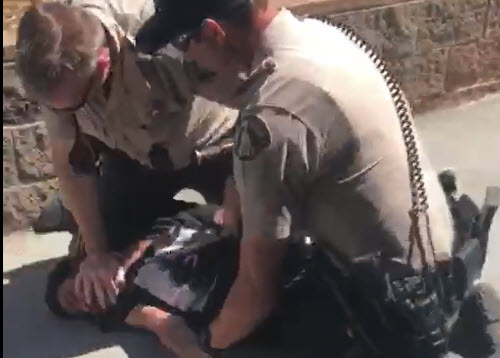Police officers have a duty to protect and serve, but when they abuse their authority, victims have legal rights. Police misconduct can take many forms, from excessive force to false arrests, and knowing what qualifies as misconduct is the first step toward seeking justice. If you believe you’ve been a victim, Steering Law can help evaluate your case—schedule a free consultation today.
What Constitutes Police Misconduct?
Police misconduct occurs when law enforcement officers violate an individual’s constitutional rights or engage in unethical behavior. Some of the most common forms include:
- Excessive Force – Using more physical aggression than necessary, such as unjustified shootings or brutal beatings.
- False Arrest/Imprisonment – Detaining someone without probable cause or a valid warrant.
- Racial Profiling – Targeting individuals based on race rather than reasonable suspicion.
- Unlawful Searches & Seizures – Conducting searches without consent or a proper warrant.
The Fourth Amendment protects against unreasonable searches and seizures, while the Fourteenth Amendment guarantees equal protection under the law. When police violate these rights, victims may have grounds for a lawsuit.
Real Cases of Police Misconduct
High-profile cases across the U.S. highlight the severity of police misconduct. For example:
- George Floyd Case (2020) – Derek Chauvin, a Minneapolis police officer, was convicted of murder after kneeling on Floyd’s neck for over nine minutes. The incident, captured on video, led to nationwide protests and a $27 million settlement for Floyd’s family.
- Breonna Taylor Case (2020) – Louisville police executed a no-knock warrant at the wrong address, leading to Taylor’s death. While no officers were charged directly in her killing, the city paid a $12 million settlement and banned no-knock warrants.
Closer to home, Steering Law has successfully handled police misconduct cases, securing justice for victims. For instance:
- Case Result: Unlawful Arrest & Excessive Force – Steering Law represented a client wrongfully detained and assaulted by officers. Through litigation, the firm secured a six-figure settlement, holding the department accountable. (See more case results [here]
What Should You Do If You Experience Police Misconduct?
If you believe an officer violated your rights, take these steps:
- Document Everything – Record names, badge numbers, and witness contacts. If possible, take photos or videos.
- Seek Medical Attention – If injured, get treated immediately and keep medical records.
- File a Complaint – Report misconduct to the police department’s internal affairs division or a civilian oversight board.
- Consult a Civil Rights Lawyer – An attorney can help determine if you have a case for compensation.
How Steering Law Can Help
Police misconduct cases are complex, requiring deep knowledge of civil rights law. Steering Law has a proven track record of holding law enforcement accountable, whether through settlements or litigation. If you’ve been a victim of police brutality, false arrest, or any other misconduct, you don’t have to fight alone. Contact Steering Law for a free case evaluation and learn how we can help you seek justice.

Steering Law is a California-based civil rights and criminal defense firm led by Jerry L. Steering, Esq. The firm focuses on police misconduct cases, including excessive force, false arrest, malicious prosecution, contempt of cop incidents, and 42 U.S.C. §1983 civil rights actions, while also handling serious criminal defense matters. Steering Law is dedicated to protecting clients’ constitutional rights and delivering justice for individuals who have been wronged by law enforcement.
